Speaker: Grzegorz Gacek (KAWA.SKA Sp. z o.o., Poland)
Talk: Advanced Laser Microdissection Systems
Time: Friday, 3rd July 2015, 12:00
Workshop: Stereoscope microscopy techniques
Time: Friday, 3rd July 2015, 09:30 – 11:00 (gr. A) and 15:00 – 16:30 (gr. C)
Venue: Biotechnology Summer School 2015, Kadyny Folwark Hotel&SPA
Category: Invited lectures during Biotechnology Summer School
Biologist, widefield microscopy, TIRF microscopy, laser microdissection and stereomicroscopy specialist. Application specialist in KAWA.SKA Sp. z o.o. the distributor of Leica Microsystems in Poland.
Speaker: Filip Dutka (Institute of Physical Chemistry, Polish Academy of Sciences, Poland)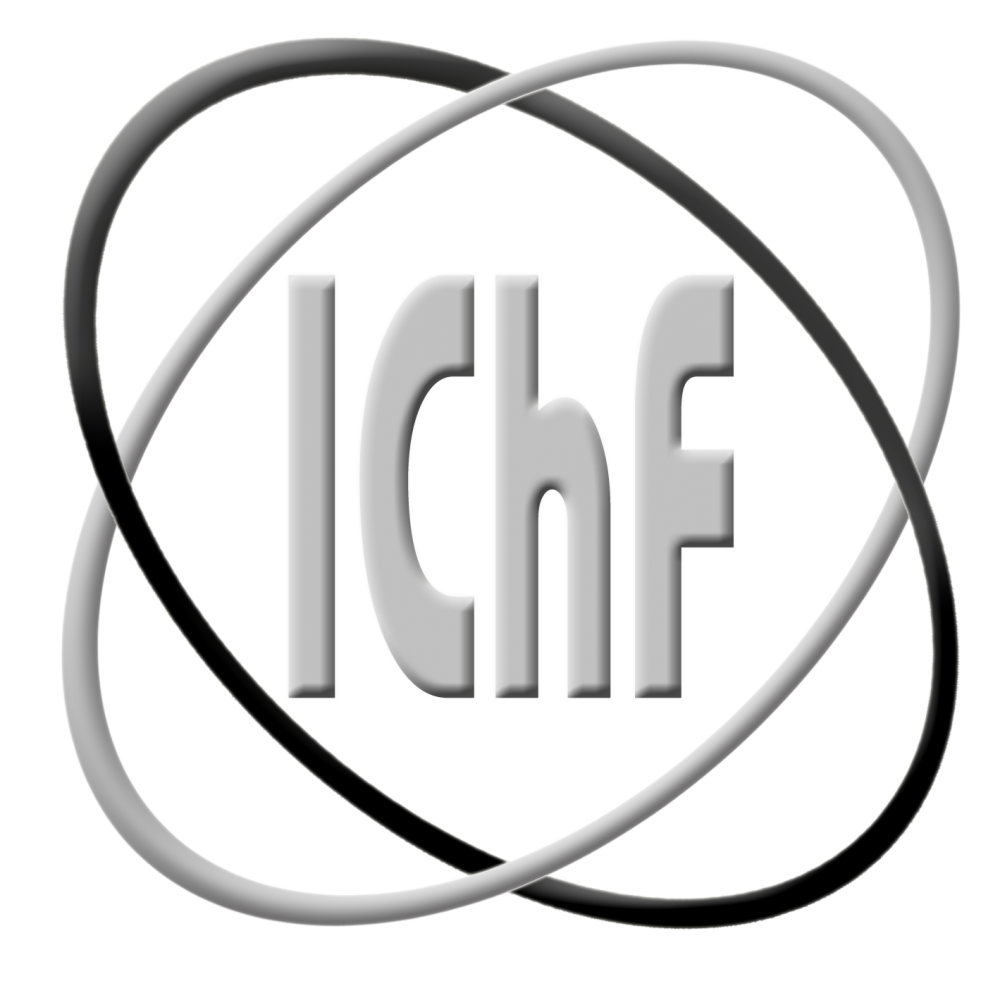
Talk: Growth of microorganisms in microfluidic devices
Time: Wednesday, 1st July 2015, 10:00
Venue: Biotechnology Summer School 2015, Kadyny Folwark Hotel&SPA
Category: Invited lectures during Biotechnology Summer School
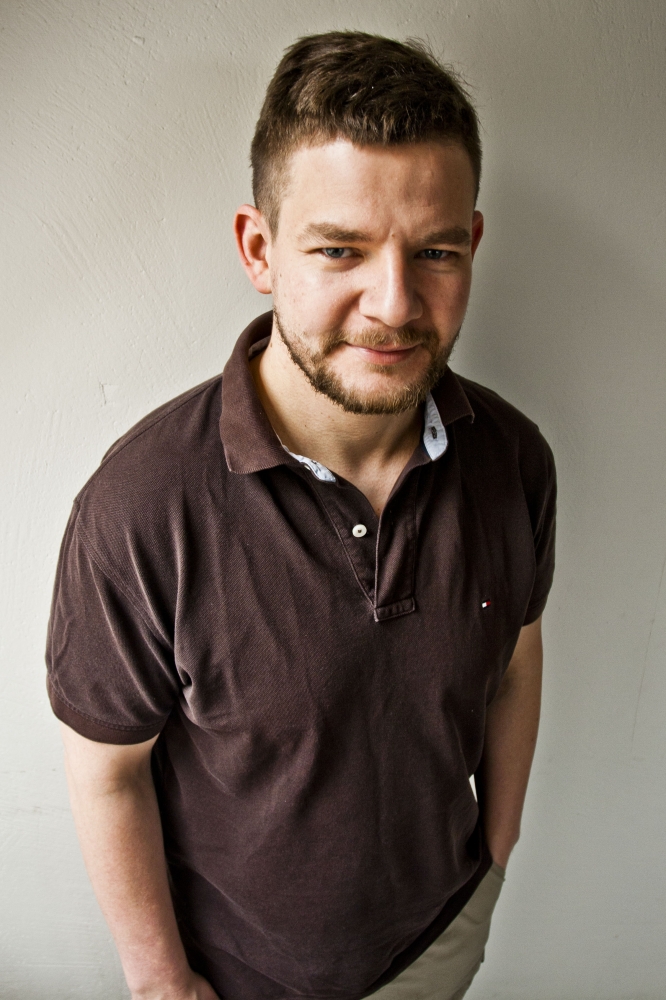 My scientific field of interest is soft condensed matter and application of microfluidics in the fields of microbiology and medicine. During my master and doctoral studies at the Faculty of Physics, University of Warsaw (Poland) I was looking into mathematical description of the liquid-gas fluid interfaces on nanoscale and phenomena such as wetting and morphological phase transitions. I continued research on nanodroplet shapes on my Post Doc in the Max-Planc-Institute if Intelligent Systems in Stuttgart (Germany). Using methods of statistical physics I explained Gibbs’ criterion on nanoscale.
My scientific field of interest is soft condensed matter and application of microfluidics in the fields of microbiology and medicine. During my master and doctoral studies at the Faculty of Physics, University of Warsaw (Poland) I was looking into mathematical description of the liquid-gas fluid interfaces on nanoscale and phenomena such as wetting and morphological phase transitions. I continued research on nanodroplet shapes on my Post Doc in the Max-Planc-Institute if Intelligent Systems in Stuttgart (Germany). Using methods of statistical physics I explained Gibbs’ criterion on nanoscale.
Coming back to Poland range of my scientific research expanded by the experimental methods in the discipline of microfluidics. In the Microfluidics and Complex Fluids Research Group, Institute of Physical Chemistry, Polish Academy of Sciences (Poland) we design and fabricate microfluidic devices in which droplets can form separate microbioreactors. In our Homing Plus project granted by the Foundation for Polish Science we constructed device in which full automated culturing of microorganisms and their online growth dynamics monitoring is possible.
Speaker: Charles Cantor (Sequenom Inc., San Diego, California, USA)
Talk: The future of DNA diagnostics
Time: Friday, 3rd of July 2015, 12:30
Venue: Biotechnology Summer School 2015, Kadyny Folwark Hotel&SPA
Category: Invited lectures during Biotechnology Summer School
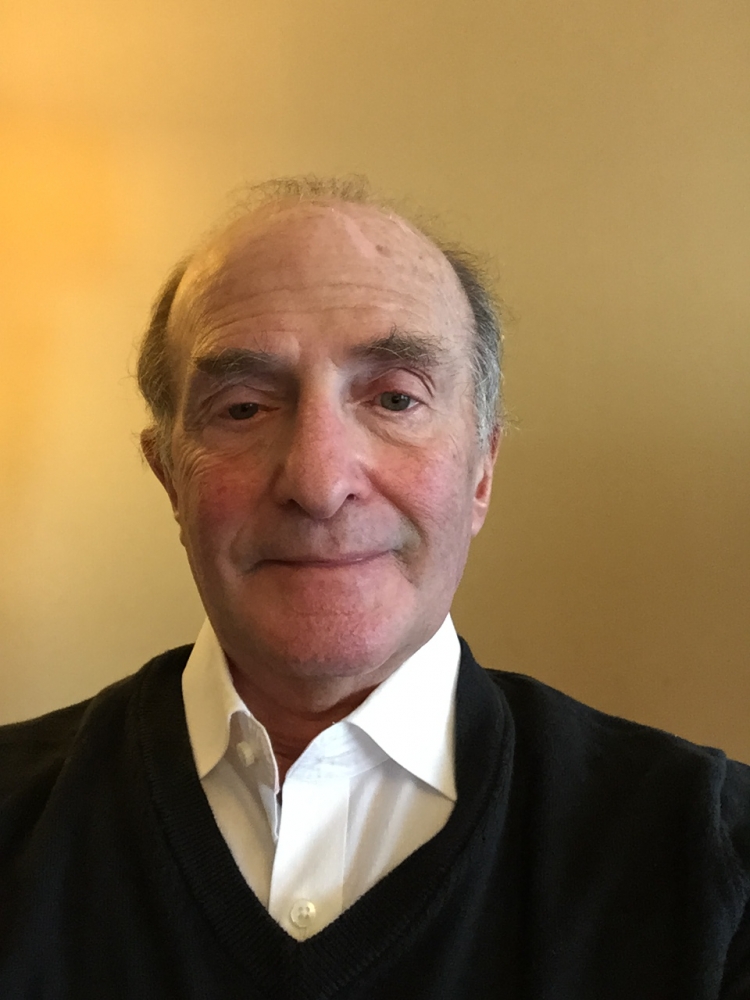 Dr. Charles Cantor is a founder, and retired Chief Scientific Officer at SEQUENOM, Inc., which is a genetics discovery company with tools, information and strategies for determining the medical impact of genes and genetic variations. Dr. Cantor consults for a number of biotech companies including SEQUENOM, Agena and Retrotope. He is also the founder of SelectX Pharmaceuticals, a drug discovery company, Retrotope, an anti-aging company, and DiThera, a biotherapeutic company.
Dr. Charles Cantor is a founder, and retired Chief Scientific Officer at SEQUENOM, Inc., which is a genetics discovery company with tools, information and strategies for determining the medical impact of genes and genetic variations. Dr. Cantor consults for a number of biotech companies including SEQUENOM, Agena and Retrotope. He is also the founder of SelectX Pharmaceuticals, a drug discovery company, Retrotope, an anti-aging company, and DiThera, a biotherapeutic company.
Dr. Cantor is professor emeritus of Biomedical Engineering and of Pharmacology and was the director of the Center for Advanced Biotechnology at Boston University. He is currently adjunct professor of Bioengineering at UC San Diego, adjunct professor of Molecular Biology at the Scripps Institute for Research, distinguished adjunct professor of Physiology and Biophysics at UC Irvine and adjunct professor at the Moscow institute of Physics and Technology. Prior to this, Dr. Cantor held positions in Chemistry and then in Genetics and Development at Columbia University and in Molecular Biology at the University of California at Berkeley. Cantor was educated in chemistry at Columbia College (AB) and at the University of California Berkeley (PhD).
Dr. Cantor has been granted more than 60 US patents and, with Paul Schimmel, wrote a three-volume textbook on biophysical chemistry. He also coauthored the first textbook on Genomics titled 'The Science and Technology of the Human Genome Project'. In addition, he has published more than 450 peerreviewed articles, and is a member of the U.S. National Academy of Sciences.
His major scientific accomplishments include the development of pulsed field electrophoresis, immuno PCR, affinity capture electrophoresis, the earliest uses of FRET to characterize distances in protein complexes and nucleic acids, the standard methods for assaying and purifying microtubule protein, various applications of nucleic acid mass spectrometry, and methods for noninvasive prenatal diagnostics. He is also considered to be one of the founders of the new field of synthetic biology.
Speaker: Zbigniew Brzózka (Warsaw University of Technology, Poland)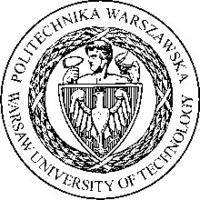
Talk: Lab-on-a-Chip devices for long-term cell culture and anticancer drug activity evaluation
Time: Wednesday, 1st of July 2015, 11:30
Venue: Biotechnology Summer School 2015, Kadyny Folwark Hotel&SPA
Category: Invited lectures during Biotechnology Summer School
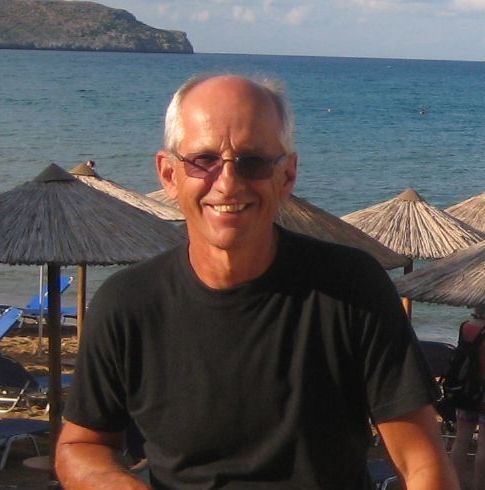 Prof. Zbigniew Brzózka obtained his Ph.D. in analytical chemistry at the Warsaw University of Technology, studying mechanisms of transition metal cations by carboxylic acids. He was a postdoctoral fellow at ETH Zurich in the middle 80’s, working on new membrane selective electrodes in Prof. W. Simon’s group supported by the Swiss National Science Fundation and by Orion Research, Inc. Then he came back to Department of Analytical Chemistry of Warsaw University of Technology and finished his Dr.Sc. in chemical sciences.
Prof. Zbigniew Brzózka obtained his Ph.D. in analytical chemistry at the Warsaw University of Technology, studying mechanisms of transition metal cations by carboxylic acids. He was a postdoctoral fellow at ETH Zurich in the middle 80’s, working on new membrane selective electrodes in Prof. W. Simon’s group supported by the Swiss National Science Fundation and by Orion Research, Inc. Then he came back to Department of Analytical Chemistry of Warsaw University of Technology and finished his Dr.Sc. in chemical sciences.
Within 1991 – 1993, he was working in postdoc position in Prof. D.N. Reinhoudt’s group (University of Twente), supported by the Royal Dutch Science Foundations (NWO, STW), by Priva and Sentron, Inc. He was involved in a number of projects on molecular recognition based on supramolecular chemistry and its application to chemical sensors (chemically modified field-effect transistors, membrane ion-selective electrodes, fibre-optic sensors) suitable for monitoring in clinical diagnostic and environmental protection. One of the most interesting topic was anion recognition (in nature, the selective complexation of anions takes place by hydrogen bonds) and his research was focused on a novel type of neutral anion receptors consisting of a combination of a Lewis acidic center and fragments involving hydrogen bonds.
Since 1998, he is tenured professor of bioanalytics in Faculty of Chemistry, Institute of Biotechnology, Department of Microbioanalytics and now heads the “Miniaturized analytical systems” team. His current research interests focus on miniaturized analytical systems (Lab-on-a-Chip) for monitoring of bioanalytes. Emphasis is now also being laid on the applications of polymer microfabrication technologies to microchemical analysis, i.e. the integrated microchips with optical and electrochemical detection principles dedicated to early diagnostics of genetic diseases as a novel approach to reliably diagnose patients, and protect them from mistaken diagnoses and disorder progress. Another field of interest of the partners will be the development of polymeric chips for human cell culture in unique, in vivo-mimicking microenvironment where studies of cellular growth and responses to external factors are conducted for drug screening and toxicology applications.
Zbigniew Brzózka has received Professor Subvention of The Foundation for Polish Science (2003-2006) and Wiktor Kemula Medal (Honour Award of Polish Society of Chemistry) (in 2010). Since September 2008, he is Dean of Faculty of Chemistry, Warsaw University of Technology.
Speaker: Joanna Bagniewska (University of Reading, United Kingdom)
Workshop: Science Communication
Time: Friday, 3rd of July 2015, 15:00
Venue: Biotechnology Summer School 2015, Kadyny Folwark Hotel&SPA
Category: Invited lectures during Biotechnology Summer School
 Dr Joanna Bagniewska is a zoologist specializing in behavioral ecology and invasive species research. She obtained her MSc and doctorate from Oxford University’s Zoology Department. Thus far she conducted research in five countries and visited over 40, having studied foxes and jackals in South Africa, wombats and wallabies in Australia, mole-rats in the USA and mink and bees in the UK. Currently she works as a teaching fellow for the School of Biological Sciences at the University of Reading.
Dr Joanna Bagniewska is a zoologist specializing in behavioral ecology and invasive species research. She obtained her MSc and doctorate from Oxford University’s Zoology Department. Thus far she conducted research in five countries and visited over 40, having studied foxes and jackals in South Africa, wombats and wallabies in Australia, mole-rats in the USA and mink and bees in the UK. Currently she works as a teaching fellow for the School of Biological Sciences at the University of Reading.
Joanna is passionate about science communication and is constantly engaged in a number of outreach activities. In 2014 she won FameLab Poland, a science communication competition for researchers, and went on to receive the Alumni Award in the international finals of the event. For the last two years she has co-organised the popular science conference “Science. Polish Perspectives”; more recently she has taken part in endeavours such as the theatrical Science Slam, science stand-up comedy for Bright Club Oxford and Museums Show Off, and the school-oriented I’m a Scientist – Get me out of here! She also described her research during a talk at TEDxWarsaw. Joanna regularly writes for Gazeta Wyborcza and Focus, and runs a blog on INNPoland.pl. In her free time (or what is left of it!) she acts as the principal ambassador for Oxford in The Kings Foundation, a mentoring scheme for university applicants.
Speaker: Zbigniew Arent DVM, PhD, MRCVS
Talk: Aspects of immunity in bovine leptospirosis
Time: 12 June, 2015, 9:00
Venue: Intercollegiate Faculty of Biotechnology, Kładki 24, lecture hall B
Category: Invited Seminar
 Qualified as veterinary surgeon from the Faculty of Veterinary Medicine in Olsztyn in 1993. Following his graduation he has spent much of his career in infectious disease science and research. He completed a PhD in veterinary microbiology in 2000 for studies on improvement of diagnostic methods of ram epididymitis caused by Brucella ovis. During his postdoctoral position he started his interests on leptospirosis. In 2007 he moved to Northern Ireland where he joined OIE Leptospirosis Reference Laboratory in AFBI, one of the essential in leptospirosis laboratories in Europe. The mission of his work is to improve the recognition and control of leptospirosis of animals. He is interested in host responses to infection as it relate to serological diagnosis, vaccinal immunity in domestic animals, molecular tools used to improve diagnosis and strains typing methods.
Qualified as veterinary surgeon from the Faculty of Veterinary Medicine in Olsztyn in 1993. Following his graduation he has spent much of his career in infectious disease science and research. He completed a PhD in veterinary microbiology in 2000 for studies on improvement of diagnostic methods of ram epididymitis caused by Brucella ovis. During his postdoctoral position he started his interests on leptospirosis. In 2007 he moved to Northern Ireland where he joined OIE Leptospirosis Reference Laboratory in AFBI, one of the essential in leptospirosis laboratories in Europe. The mission of his work is to improve the recognition and control of leptospirosis of animals. He is interested in host responses to infection as it relate to serological diagnosis, vaccinal immunity in domestic animals, molecular tools used to improve diagnosis and strains typing methods.
| Załącznik | Wielkość |
|---|---|
| 369.11 KB |
 Speakers: Prof. Ivo Feussner, University of Gottingen; Prof. Roman Zubarev, Karolinska Institute; Dr Andreas Marquardt, University of Konstanz; Dr Michal Sharon, Weizmann Institute of Science; Dr Piotr Stefanowicz, University of Wroclaw; Cyrus Papan, Sciex;
Speakers: Prof. Ivo Feussner, University of Gottingen; Prof. Roman Zubarev, Karolinska Institute; Dr Andreas Marquardt, University of Konstanz; Dr Michal Sharon, Weizmann Institute of Science; Dr Piotr Stefanowicz, University of Wroclaw; Cyrus Papan, Sciex;
Topic: Innovations in environmental friendly productions of lipids and proteins for industry
Time: 18 March 2015
Venue: Intercollegiate Faculty of Biotechnology, Kładki 24, lecture hall B
Category: Open lecture session
Open session organized within the MOBI4Health project during the workshop focusing on application of mass spectrometry in biological science. The main subject of the workshop is “Innovations in environmental friendly productions of lipids and proteins for industry”.
Speaker: Frank Graage (Steinbeis-Forschungszentrum Technologie-Management Nordost, Germany)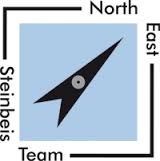
Talk: Motivation to get engaged with Horizon 2020 for scientists. Why and when participate - a realistic view to make the decision
Time: 29 May, 2015, 9:00
Venue: Intercollegiate Faculty of Biotechnology, Kładki 24, lecture hall B
Category: Invited Lecture
Frank Graage (Steinbeis Team Northeast) - Expert on EU proposal preparation and management in Life Sciences, EU-Evaluator
Speaker: Dr Monika Słomińska-Wojewódzka (University of Gdańsk, Poland)
Topic: Substrate specificity of the endoplasmic reticulum chaperone proteins EDEM1 and EDEM2, and their role in the intracellular transport of ricin [abstract in PDF]
Time: 13 March, 2015, 9:00
Venue: Intercollegiate Faculty of Biotechnology, Kładki 24, lecture hall B
Category: Invited seminar
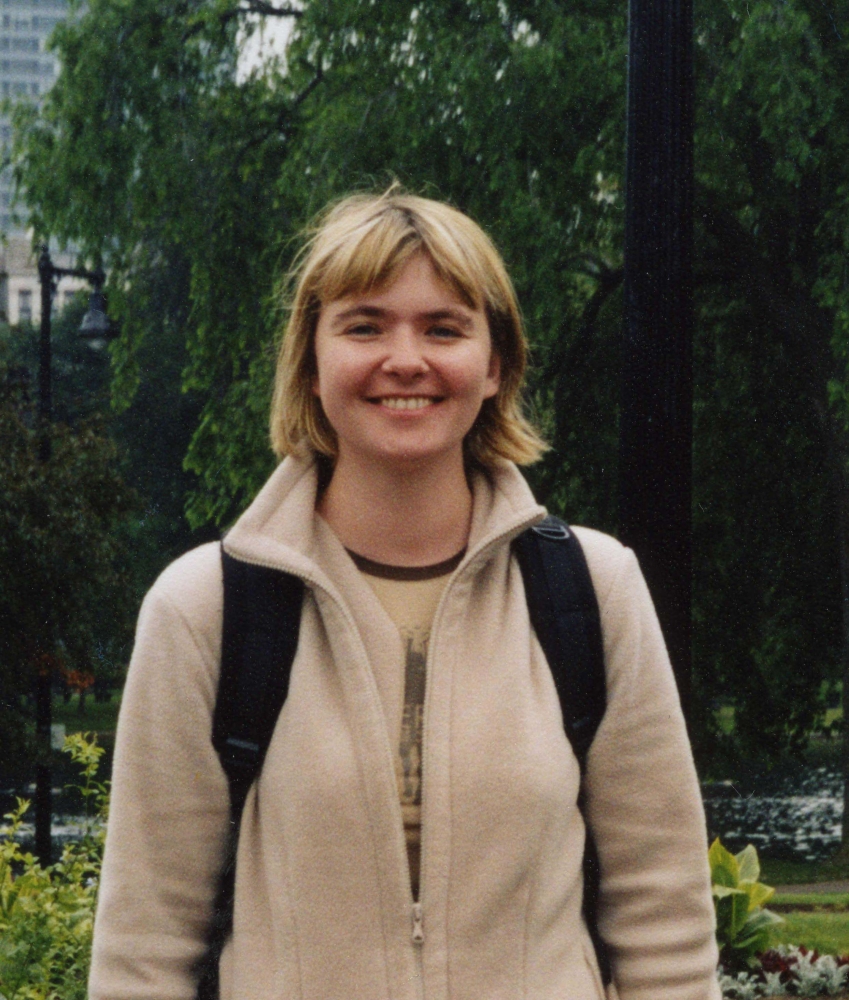 Monika Słomińska-Wojewódzka studied Biotechnology at the Intercollegiate Faculty of Biotechnology, University of Gdańsk and Medical University of Gdańsk. She obtained her PhD in molecular biology at the Faculty of Biology, Geography and Oceanology, University of Gdańsk in 2003 working in the field of bacteriophage genetics. In 2003-2005 she worked as a postdoctoral fellow at the Department of Biochemistry, Institute for Cancer Research, The Norwegian Radium Hospital, Oslo, Norway. Her scientific interests focused on the intracellular transport of ricin, a protein toxin. This fellowship was financed by the European Molecular Biology Organisation (EMBO long-term fellowship). Currently, she works at the Laboratory of Cell Signaling at the Department of Molecular Biology, University of Gdańsk. The main objectives of her research interests involve investigation of the role of endoplasmic reticulum (ER) chaperone proteins and ER translocons in protein transport to the cytosol and detailed analysis of ricin cytotoxic effect on different cancer cell lines.
Monika Słomińska-Wojewódzka studied Biotechnology at the Intercollegiate Faculty of Biotechnology, University of Gdańsk and Medical University of Gdańsk. She obtained her PhD in molecular biology at the Faculty of Biology, Geography and Oceanology, University of Gdańsk in 2003 working in the field of bacteriophage genetics. In 2003-2005 she worked as a postdoctoral fellow at the Department of Biochemistry, Institute for Cancer Research, The Norwegian Radium Hospital, Oslo, Norway. Her scientific interests focused on the intracellular transport of ricin, a protein toxin. This fellowship was financed by the European Molecular Biology Organisation (EMBO long-term fellowship). Currently, she works at the Laboratory of Cell Signaling at the Department of Molecular Biology, University of Gdańsk. The main objectives of her research interests involve investigation of the role of endoplasmic reticulum (ER) chaperone proteins and ER translocons in protein transport to the cytosol and detailed analysis of ricin cytotoxic effect on different cancer cell lines.
| Załącznik | Wielkość |
|---|---|
| 191.45 KB |
Speaker: Dr. Niki Karachaliou (Catalan Institute of Oncology (ICO) – Badalona, Barcelona, Spain)
Talk: Integrated research in STAT3 in cancer stem cells. Early adaptive resistance to EGFR inhibition in EGFR mutant Non-Small-Cell-Lung-Cancer
Time: 27 March, 2015, 9:00
Venue: Intercollegiate Faculty of Biotechnology, Kładki 24, lecture hall B
Category: Invited Seminar
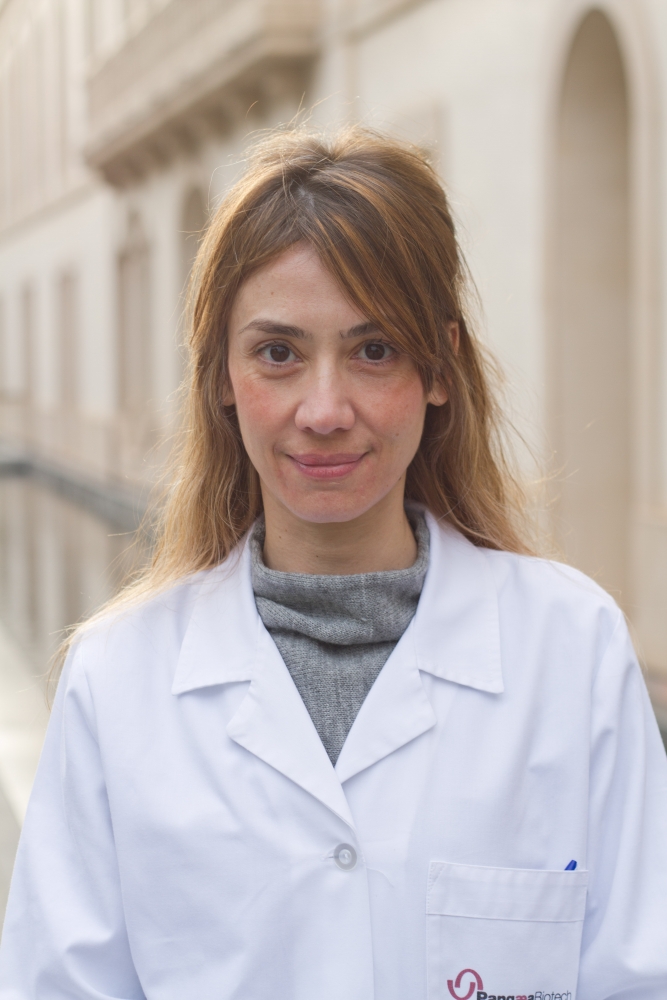 Dr Niki Karachaliou is a medical oncologist and member of the Translational Research Unit of the Instituto Oncológico Dr Rosell in Barcelona. She completed her graduate studies at the University of Athens Medical School (1994-2002) and achieved a score of 9 (maximum possible 10). She completed a three-year residency in internal medicine, including six months in hematology, and a second three-year residency in medical oncology at the University Hospital of Heraklion, Crete, Greece (2005-2011). In 2012, she was accepted as a translational research fellow under the mentorship of world-renowned medical oncologist and translational researcher Dr Rafael Rosell in Barcelona, Spain.
Dr Niki Karachaliou is a medical oncologist and member of the Translational Research Unit of the Instituto Oncológico Dr Rosell in Barcelona. She completed her graduate studies at the University of Athens Medical School (1994-2002) and achieved a score of 9 (maximum possible 10). She completed a three-year residency in internal medicine, including six months in hematology, and a second three-year residency in medical oncology at the University Hospital of Heraklion, Crete, Greece (2005-2011). In 2012, she was accepted as a translational research fellow under the mentorship of world-renowned medical oncologist and translational researcher Dr Rafael Rosell in Barcelona, Spain.
| Załącznik | Wielkość |
|---|---|
| 337.72 KB |